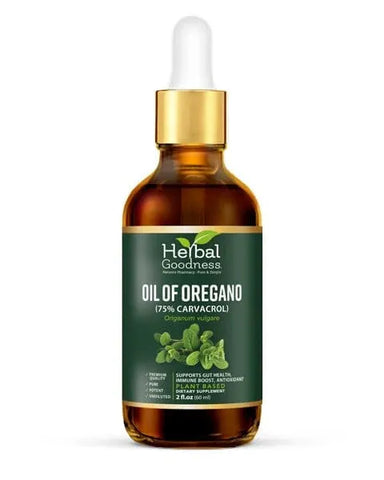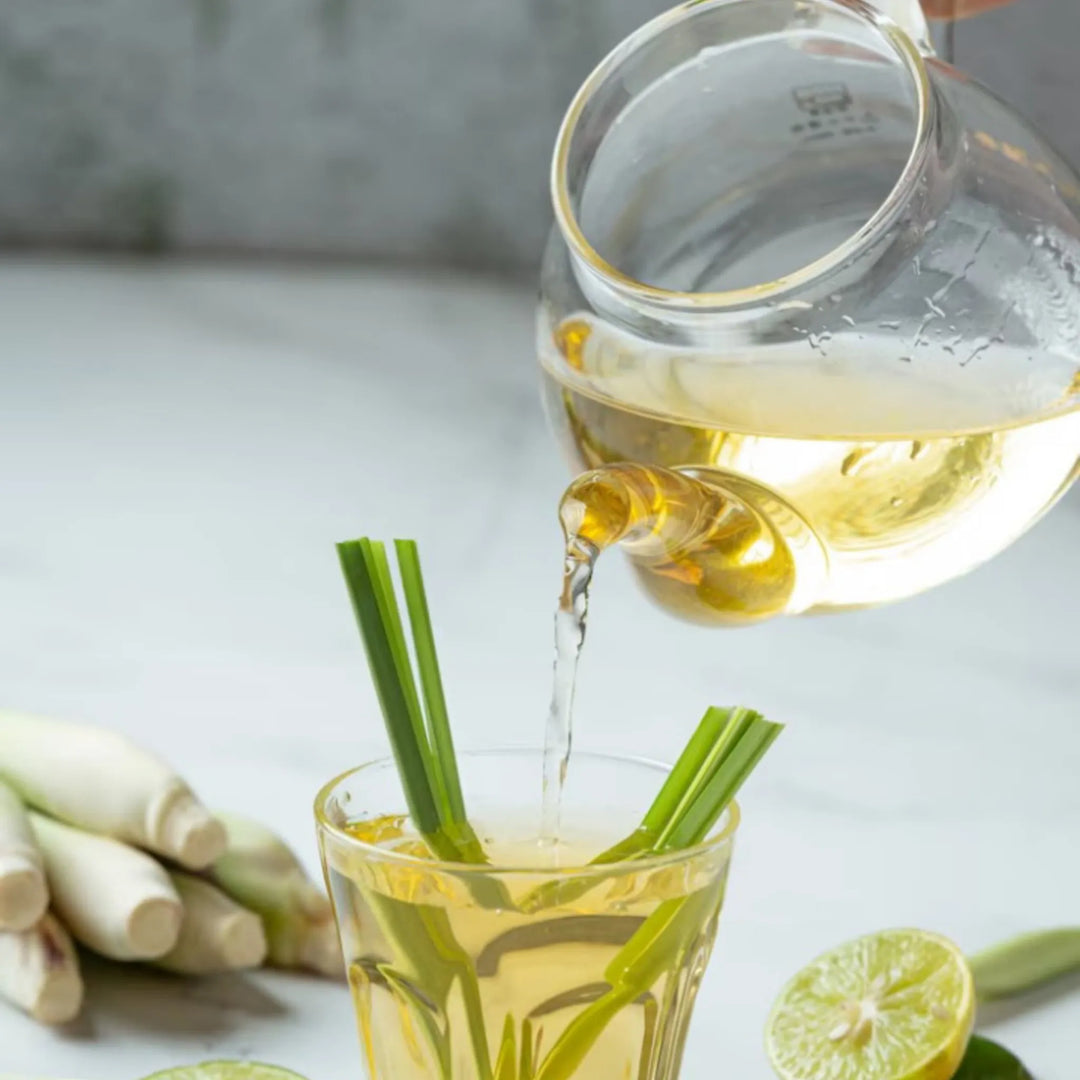Oil of Oregano Benefits: What This Powerful Herb Is Good For
Oil of Oregano has been treasured for centuries in traditional wellness practices. Known for its strong aroma and high concentration of natural compounds, this herbal extract has become a go-to for people looking to support their daily health routines.
From immune wellness to digestive comfort, oregano oil continues to capture attention as more research highlights its potential. But what is oil of oregano good for, and how can you use it safely? Let’s explore the many, oil of oregano benefits and how you can incorporate this powerful plant into your lifestyle.
What Is Oil of Oregano?
Oil of Oregano is derived from the leaves of the oregano plant (Origanum vulgare), a member of the mint family. While fresh oregano is a popular culinary herb, the oil form is highly concentrated, containing beneficial compounds such as carvacrol and thymol.
Because of its strength, oil of oregano is not typically consumed like cooking herbs. Instead, it’s taken in diluted drops, capsules, or blends for targeted wellness purposes.
Oil of Oregano Benefits
1. Immune Support
Many people reach for oregano oil during seasonal changes. Its unique compounds are often supports immune wellness, making it a staple in natural households.
2. Antioxidant Power
Research indicates oregano oil supports natural antioxidants that contribute to the body’s response to daily oxidative stress.
3. Digestive Health
Oregano oil has a long history of traditional use in supporting digestive comfort. It may help promote balance in the gut environment when used in moderation.
4. Respiratory Comfort
Oil of Oregano is also traditionally used to promote respiratory wellness, particularly in colder months when seasonal discomforts are more common.
5. General Vitality
As part of a healthy lifestyle, oregano oil is valued for supporting overall energy and resilience.
What Is Oil of Oregano Good For?
If you’re asking “what is oil of oregano good for?”, here are the most common ways people use it:
-
Daily wellness support
-
Encourages balance during seasonal changes
-
Supports gentle digestive balance
-
Traditionally used to support clear breathing
-
Provides natural antioxidants that contribute to overall wellness
Its versatility makes it one of the most respected herbal extracts in natural wellness.
How to Use Oil of Oregano
Because oil of oregano is potent, proper use is essential.
-
Under the tongue: Dilute 1–2 drops in a carrier oil (like olive oil) before placing under the tongue.
-
Liquid extracts: Pre-diluted options, like Herbal Goodness Oil of Oregano, offer safe serving sizes.
-
Topical application: Mix with a carrier oil before applying to the skin.
-
Blends: Oregano oil is sometimes paired with other plant oils such as black seed oil for complementary support.
Oil of Oregano and Black Seed Oil: A Potent Pair
One trending combination is oil of oregano with black seed oil. Black seed oil contains thymoquinone, another compound studied for plant-based wellness benefits. Together, they offer a complementary approach to immune and general health support.
Side Effects of Oil of Oregano
While generally safe in moderation, oregano oil is highly concentrated and can cause issues if used incorrectly.
-
Possible side effects: Stomach upset, burning under the tongue, or skin irritation if applied undiluted.
-
Precautions: Avoid during pregnancy or breastfeeding unless advised by a healthcare provider.
-
Best practice: Always dilute and never exceed recommended servings.
Choosing the Best Oil of Oregano
Not all oregano oils are created equal. The best oil of oregano is:
-
Organic: Free from pesticides and chemicals.
-
High Carvacrol Content: Potency is linked to carvacrol concentration.
-
Tested for Purity: Free from fillers and additives.
Herbal Goodness offers Organic Oil of Oregano (75% Carvacrol) – 2oz Liquid, crafted for purity and consistency.
Health Benefits of Consuming Oregano Oil: Science Perspective
Research has examined oregano oil for its antioxidant and plant-protective effects. A 2018 study published in the Journal of Applied Microbiology highlighted carvacrol’s potential for supporting the body’s defense systems.
While more human studies are needed, these findings support the long-standing traditional use of oregano oil for overall wellness support.
FAQ Section
1. What is oil of oregano good for?
It is often used for immune support, digestive support, respiratory, and general vitality support.
2. How to take oil of oregano under the tongue?
Always dilute 1–2 drops with a carrier oil like olive oil before use.
3. What are the side effects of oil of oregano?
If used undiluted or excessively, it may cause stomach upset or irritation.
4. Can oil of oregano be used for colds?
Traditionally, it’s taken during seasonal discomforts, though more research is needed.
5. Is organic oil of oregano better?
Yes, organic ensures purity, potency, and sustainability without chemical residues.
6. Can I combine oil of oregano with black seed oil?
Yes, many people blend them for complementary plant-based wellness support.
Ready to ex![]() perience the natural strength of oregano?
perience the natural strength of oregano?
Author Name:
Ilomuanya Mmesoma Davina
Author Bio:
Ilomuanya Mmesoma Davina is a Content Writer at Herbal Goodness, where she focuses on creating and optimizing blogs. With expertise in natural health products and SEO-driven storytelling, she is passionate about educating readers on the power of herbs and superfoods for modern wellness.
Related:
References:
-
National Institutes of Health (NIH): Oregano Oil Overview
-
Journal of Applied Microbiology (2018). Carvacrol as a plant-protective compound.













